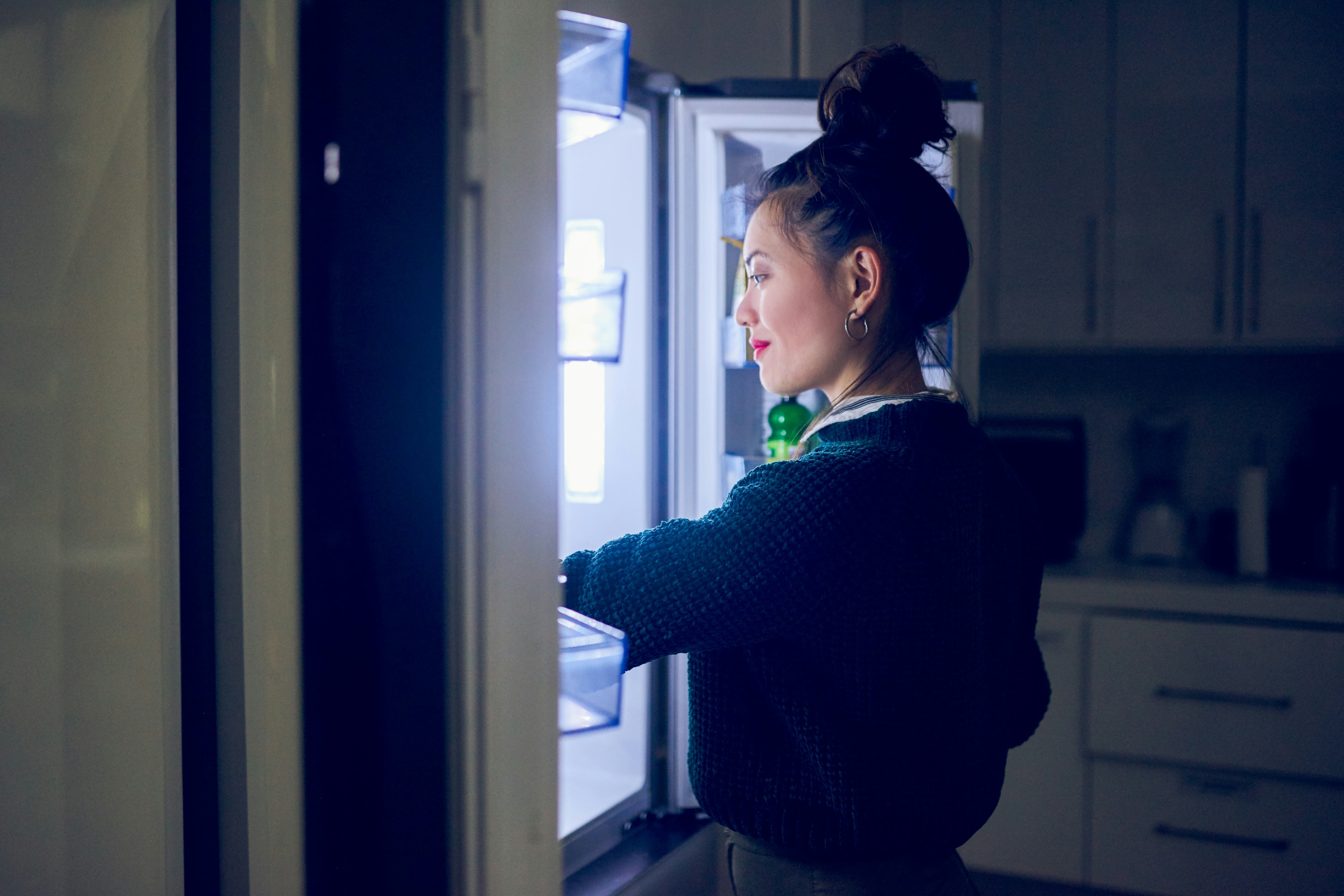
Nurses, doctors, cashiers, waitstaff, security guards, and many others are all familiar with the graveyard shift. The sundown-to-sunrise work schedule can be hard to adjust to when going against the body’s instinct to sleep, not to mention a potentially lonely night.
There are also some health risks that come along with throwing off the body’s circadian rhythm. These include physical, mental, emotional, and behavioral changes that operate on a 24-hour cycle and respond to natural cues like light. In fact, night shift workers have, on average, a 25 to 40 percent higher risk for anxiety and depression.
The number of people who perform shift work is not minimal. According to a 2020 review in the journal Current Psychiatry Reports, about 25 percent of the workforce perform some shift work. This leaves a sizeable chunk of the population especially vulnerable to poor emotional wellness.
Part of how the body regulates itself in this 24-hour cycle is through mealtimes. Having regular meals at certain hours of the day can help with circadian alignment, improving or maintaining one’s emotional state. However, someone on the graveyard shift may be eating in the middle of the night, when the body thinks it should be asleep and digesting.
A small study published this past week in the Proceedings of the National Academy of Sciences looked at how mealtime habits impact emotional well-being. Understanding this connection can help researchers find ways to cater to our biology and safeguard our emotional and mental health.
LONGEVITY HACKS is a regular series from Inverse on the science-backed strategies to live better, healthier, and longer without medicine. Get more in our Hacks index.
Science in action — A team at Brigham and Women’s Hospital in Boston recruited 19 healthy participants. Before the study began, the subjects regulated themselves with eight hours in bed at the same time each day for two weeks. In the three days leading up to the experiment, participants all received three meals a day and one snack.
Then came forced desynchrony.
Each participant lived alone in a private, dimly lit environment free of time cues. During this period, they went through four 28-hour cycles so that by the fourth day, they’d be 12 hours off their circadian rhythm. Both groups followed a sleeping and resting schedule that included fixed mealtimes. In that aspect, the participants were split into two groups. One group received meals during what would be their daytime and nighttime, and the other had meals during the daytime only. Both groups performed assigned work at night to simulate a night shift.
Once an hour for these four days, the researchers assessed any displays of anxiety or depression in participants using a method called computerized visual analog scales. This method asked participants to rate their emotional state by marking an area on a spectrum between two opposing feelings, like sad and happy or excited and calm. Depression- and anxiety-like behaviors and moods arose from how participants rated themselves on this continuum.
To the researchers’ surprise, the group that only ate during the daytime showed lower levels of anxiety and depression than the group that ate during the day and night.
Why it’s a hack — Sleep is often the first concern with night shift workers as a way to throw off the body’s natural rhythm. But there’s ample evidence that the hours we choose for meals are just as important.
“Meal timing is emerging as an important aspect of nutrition that may influence physical health,” Sarah Chellappa, a co-author of the paper, writes to Inverse. “However, the causal role of the timing of food intake on mental health in real-life shift workers remains to be tested.”
According to this paper, many biological mechanisms are at work behind why meal time may influence emotional state. Hyperglycemia, for one thing, is a risk factor for depression. The gut microbiome also impacts mental wellness, and our gut microbes are sensitive to serotonin regulation, inflammation, and stress. Circadian disruption messes with these tiny metropolises. Perhaps staying up all night and sleeping during the day is unavoidable, but keeping mealtimes to only daylight hours can help prevent further depression.
How it affects longevity — It’s well recognized at this point that emotional well-being is as crucial as physical well-being. But we’ll, of course, repeat it again.
Hack score out of 10 — 🍝🍜🍲🍛🍱 (5/10 meals eaten during daytime)







